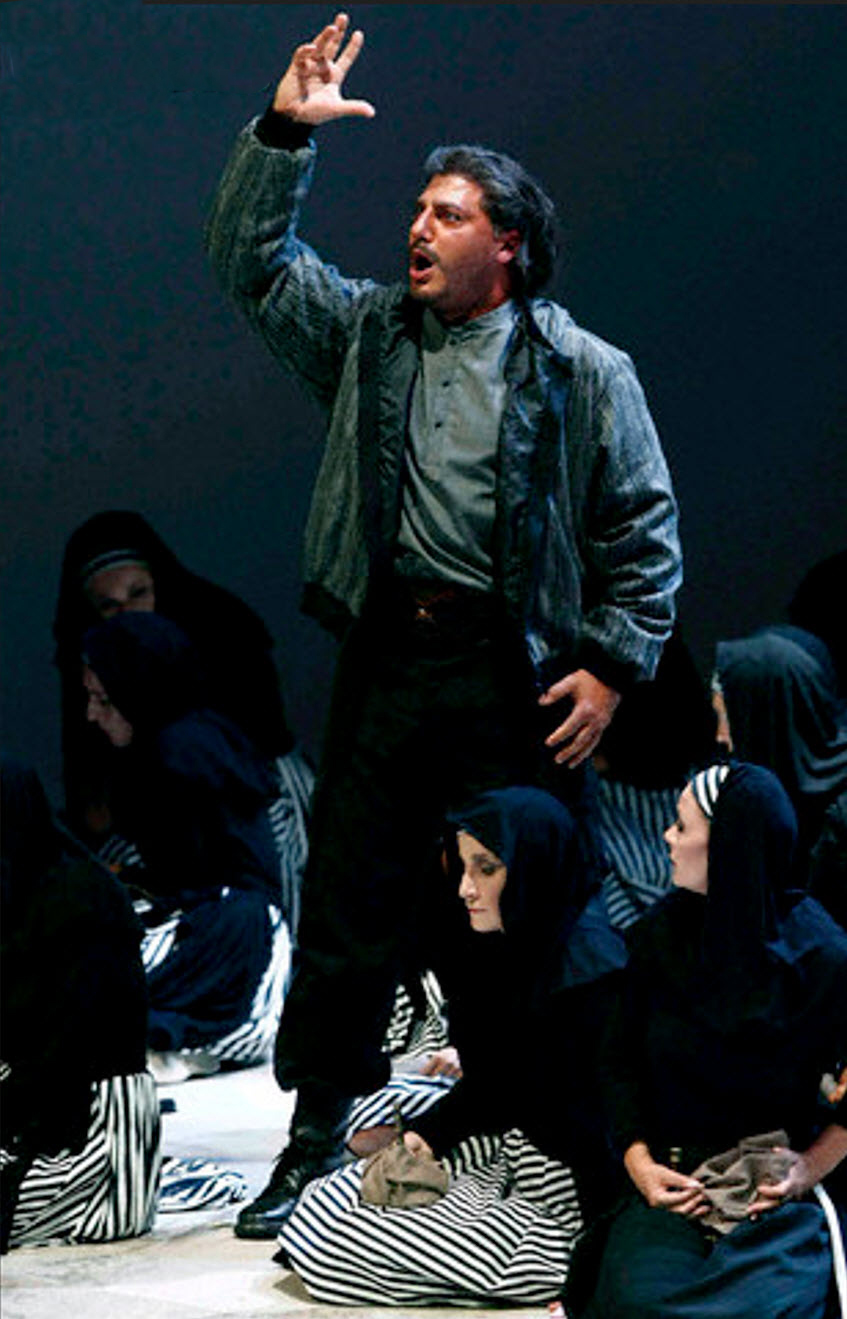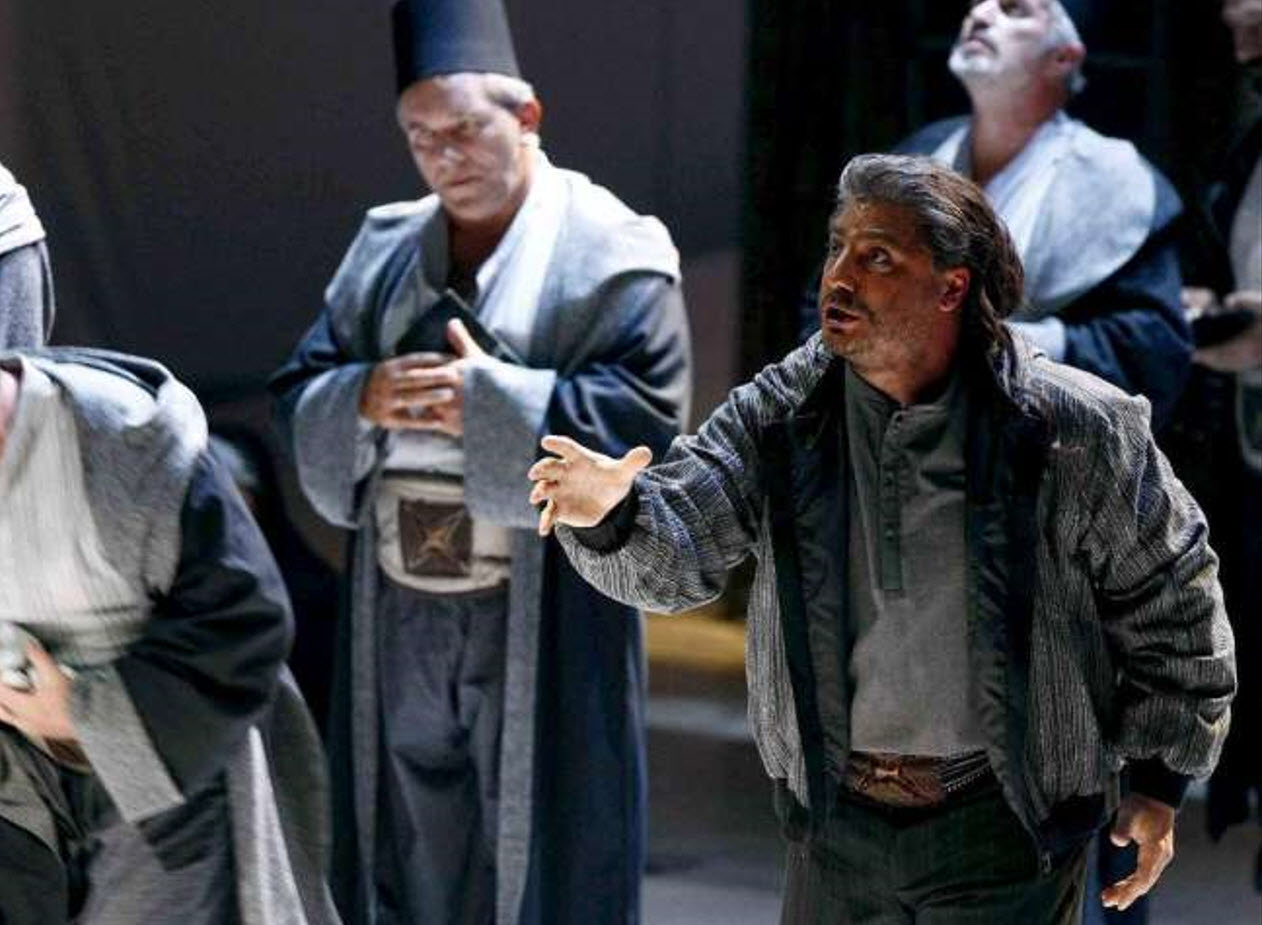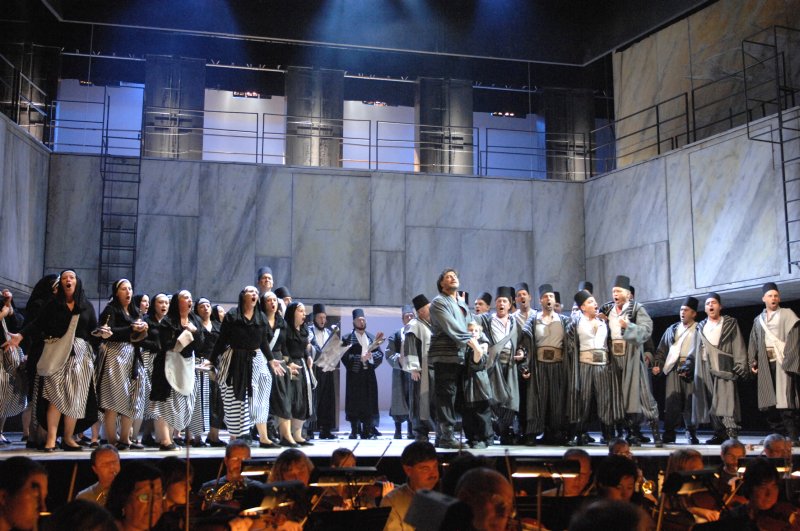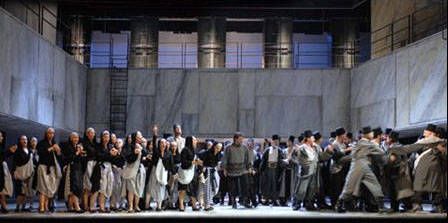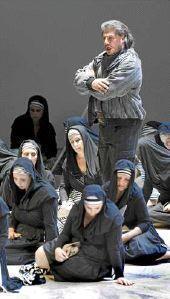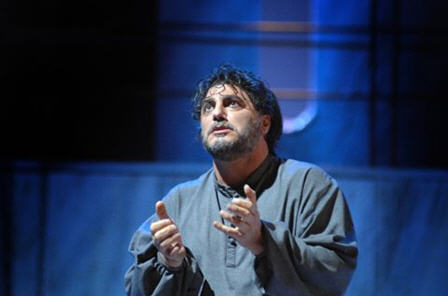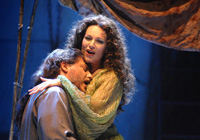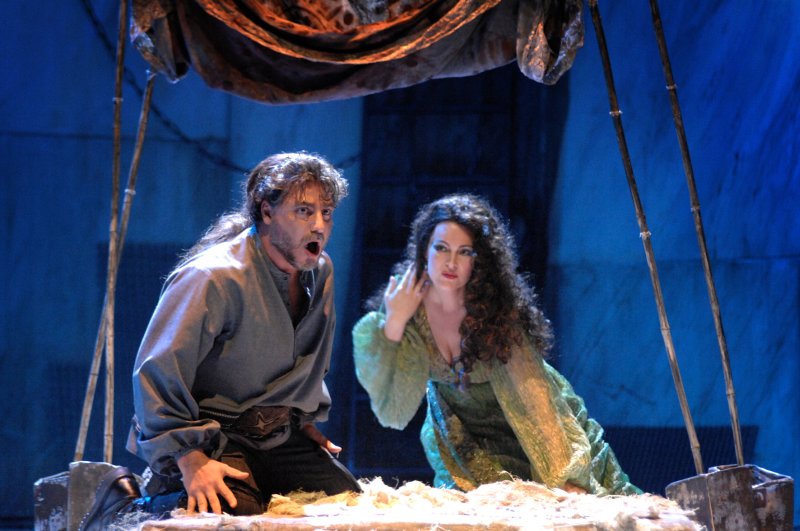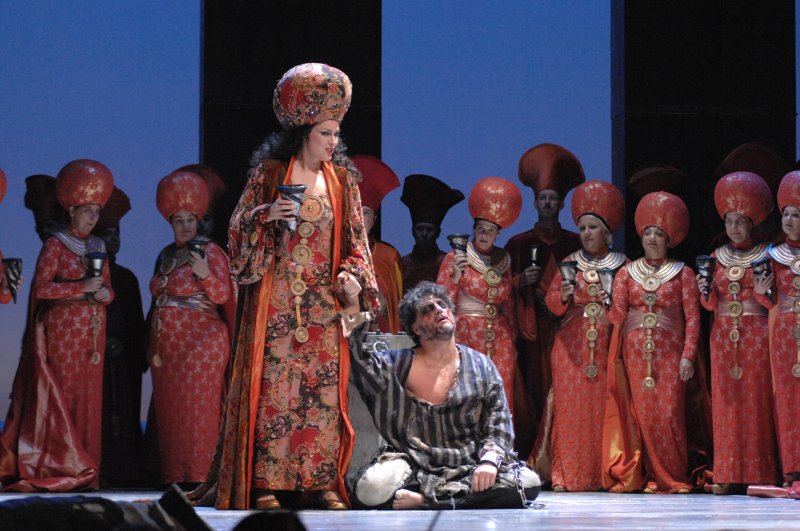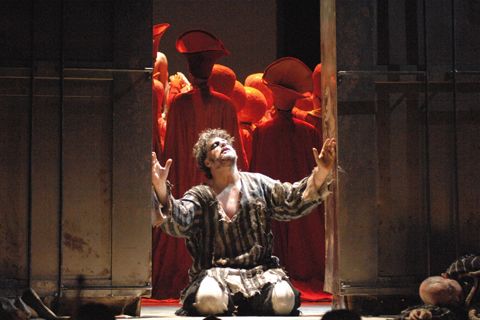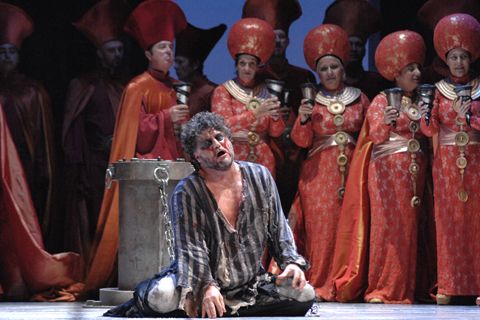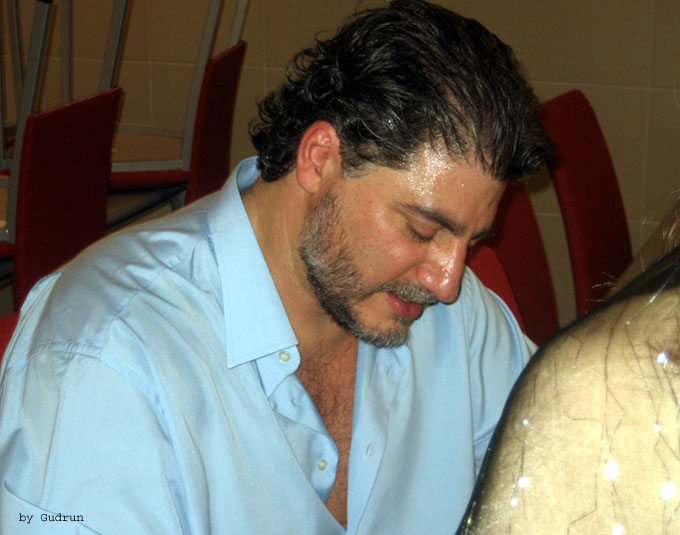|
|
|
|
In 2008 and 2009 José
Cura crisscrossed Europe with
a production of Samson
et Dalila originating
in Bologna and moving on to
Santander and Liege.
The production itself presented
problems in it's design and
costuming (onion-heads anyone?)
but the reviews were nearly
unanimous: José Cura was
the definitive Samson and he
was extraordinary in these performances.
|
Tickets are now available
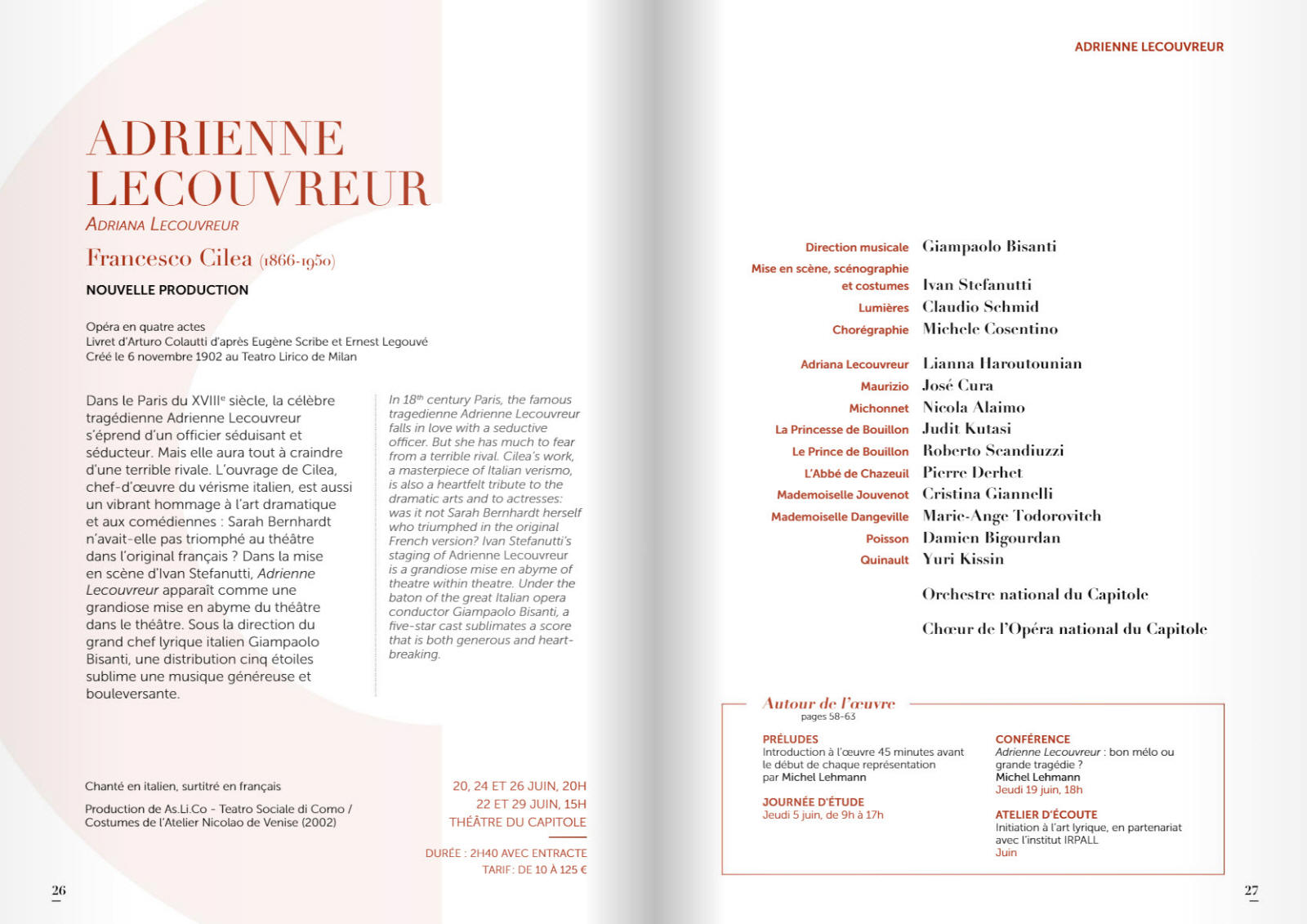
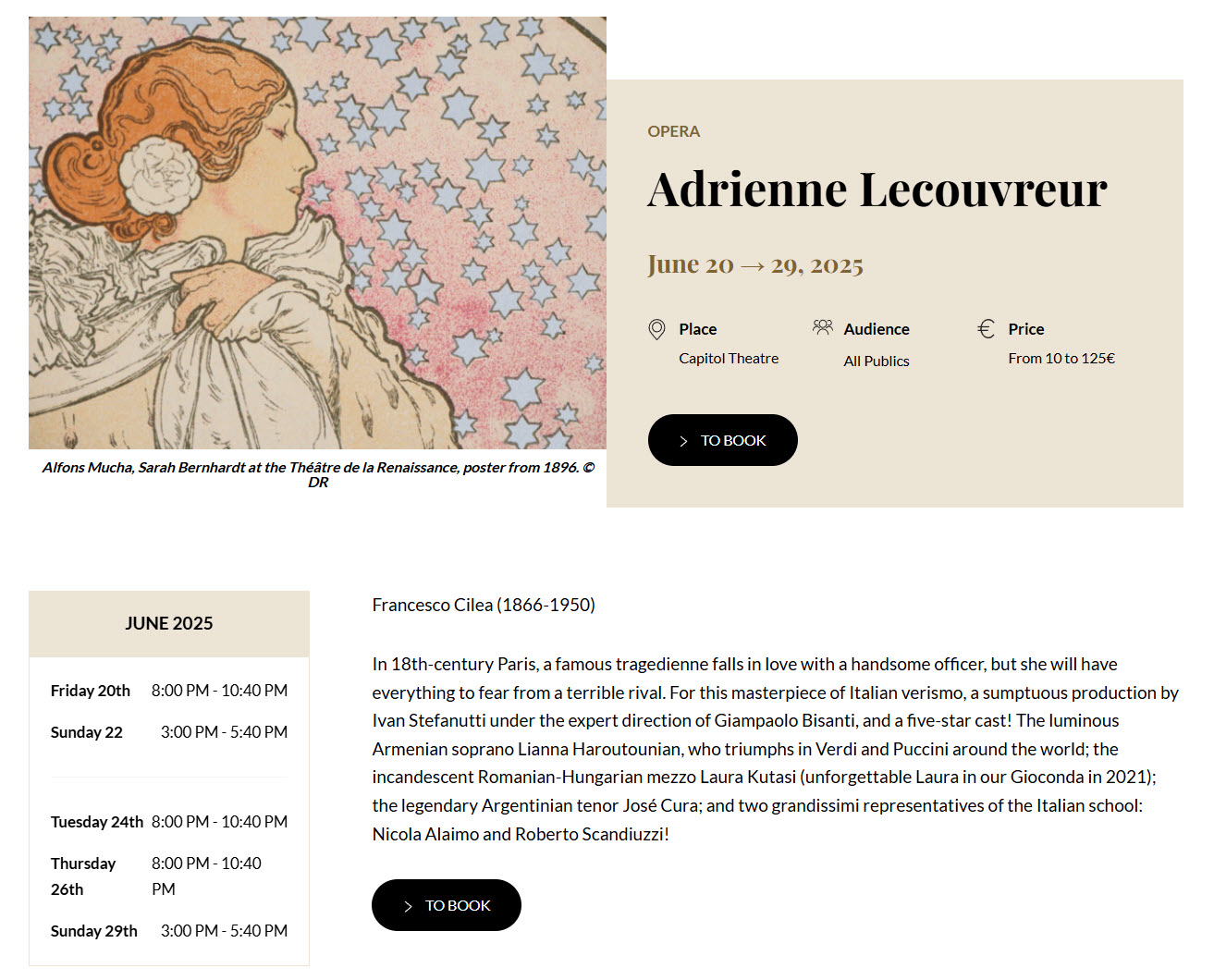
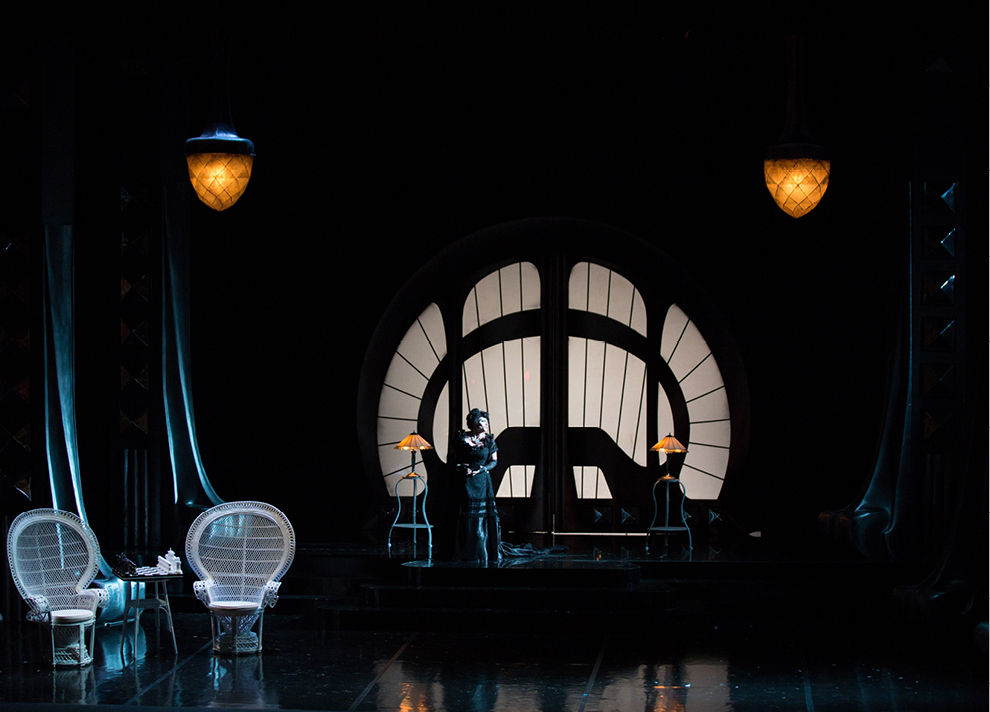


Peter Grimes - Estonia National Opera
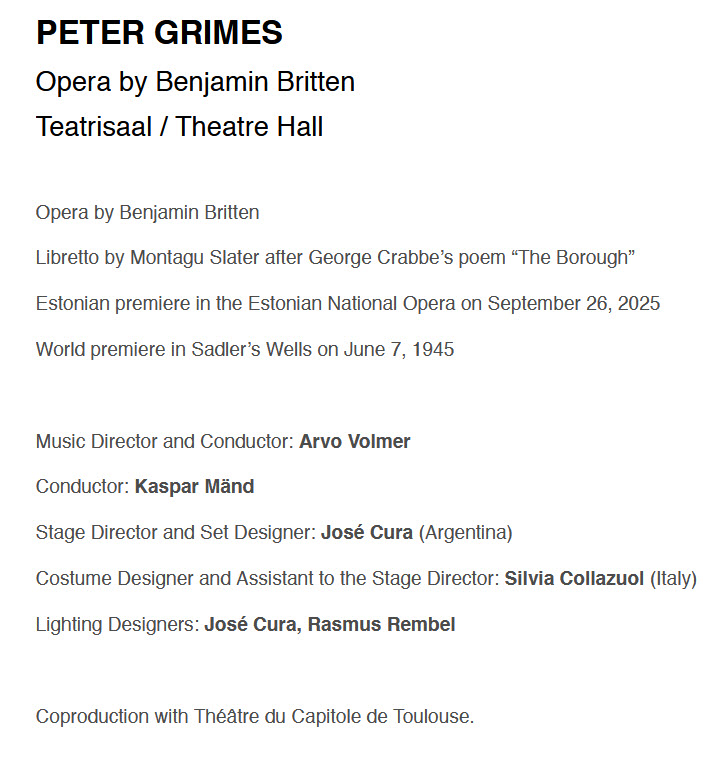
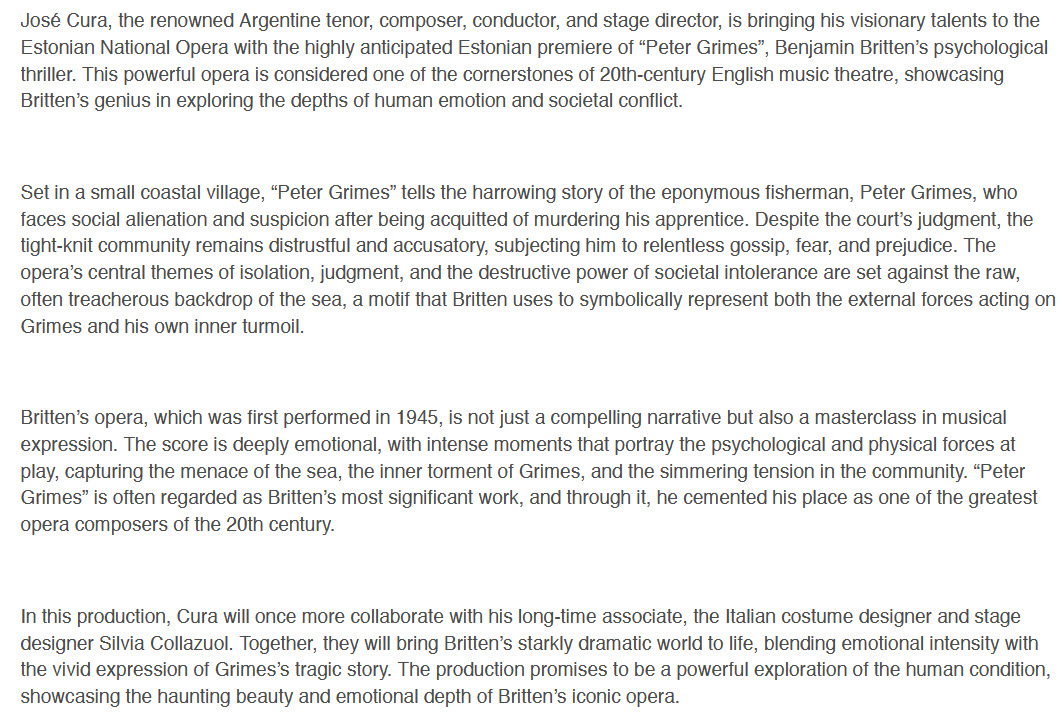



2008 - 2009 Shared production
|
Samson et Dalila, Bologna, June 2008: “The merit of the final scene goes to José Cura, who seems reborn and purposefully refining the interpretation of the role that fits him so perfectly.” La Repubblica, 2 June 2008
Samson et Dalila, Bologna, June 2008: “José Cura as Samson also does well. If recently he seemed to be chasing after the good old days when his voice was a flood, he now uses with good “economy,” even stylistically, the means at his disposal. Applause.” Corriere della Sera, 15 June 2008
Samson et Dalila, Bologna, June 2008: “Dalila, the beautiful Philistine who betrays Samson for racial hatred and thirst for revenge is Russian mezzo Julia Gertseva. She is beautiful, with a sumptuous voice, sings well, and is both musical and a musician. However, that necessary spark of inexpressible femininity fails to materialize. No such problem with the performance of José Cura. In the first act, shirt opened across his buff chest, he runs agilely up and down the metallic stairs that divides the two levels of the set, with the oppressive Philistines occupying the upper level, the oppressed Jews on the lower one. And if the instrument is not be what it once was, any ungenerous thought is swept away in the second act, that of seduction and betrayal, where the emphasis is more intimate and conflicted to prepare for the arrival of the true emotions that comes in the third act, where shorn, wounded, and suffering, [Cura] shows himself to be a mature and sensitive interpreter, with the true timbre of an artist. A great success…” Il Sole 24 Ore, 5 June 2008
Samson et Dalila, Bologna, June 2008: “The Bologna season ended with a resounding success for Samson et Dalila, marked by the rhythmic ‘ola’ of the final applause. Principle merit must be attributed to that vocal and interpretive hurricane who answers to the name of José Cura. One of the roles felt most keenly by the Argentinean tenor from Rosario is Samson. You may have seen and heard him in action at the Teatro Regio in Turin when he caused a sensation by appearing in loin-cloth, or at the Liceu in Barcelona when his unexpected performance substituting for José Carreras resulted in him becoming a favorite of that theater. In short, Cura is the only Samson. Beyond the undeniable stage presence, it must be noted in this role [Cura’s] obvious musical engagement in respect to the score and in adherence to the signs of expression, arriving at a display of unthinkable and sweet mezzevoci in the vocal surrender, where the timbre of precious bronzed amber stands out in all it manly beauty. Thus applied we want to see and listen more often but one thing more is also Cura: unpredictable. However, when he is on stage he is the catalyst who demands the attention while the other struggle twice as hard to be noticed.” L'Opera, August 2008
Samson et Dalila, Bologna, June 2008: “The predominant tessitura of Samson is congenial to both the beautiful voice of José Cura and his temperament. The broad timbre, encased in burnished velvet, is at its best in the middle tones…in the third act the singer offers the best of himself and the results are excellent, showcasing a man defeated but not tamed, making credible and touching the prolonged moral agony. This Samson, in fact, is not drawn from the religious, maintains at all time a very strong human nature with no hidden ‘divine mission,’ combining fragility and vulnerability to make the events even more tragic.” Teatro.Org, 6 June 2008
Samson et Dalila, Bologna, June 2008: “With his natural fighter’s temperament, José Cura mesmerized the audience and it would be difficult nowadays to find a more convincing Samson with the requisite quasi-baritonal qualities.” Opera Now, September/October 2008
Samson et Dalila, Bologna, June 2008: “With great pleasure we found José Cura in wonderful form, extraordinary in stage craft and incisive in accents and phrasing. A triumph.” GBOpera Magazine, 11 June 2008
Samson et Dalila, Santander, August 2008: “Tenor José Cura undoubtedly has style, and his beautiful timbre shone brightly in his debut in the Santander Festival. He has the force and dramatic quality necessary [for this role] and was splendid in the second act aria, Mon coeur s'ouvre á ta voix, sung with Dalila.” El Diario Montanes, 29 August 2008
Samson et Dalila, Santander, August 2008: “There is no doubt that anticipation had been raised about José Cura's portrayal of Samson. The Argentine's stage presence is both very powerful and magnetic, perhaps somewhat exaggerated, even overwhelming. In that sense, he creates a believable character, albeit with certain aspects of posturing, designed to delight the audience visually but at the same time interfering with the perception of his vocal qualities, which proved uneven throughout the evening, particularly in the first act. The second act brought us the most inspired Cura of the evening; the Argentine seemed to calm his fiery locomotor, to the benefit of his art: it can be said that he shone in what is undoubtedly the opera's star aria, Mon coeur s'ouvre à ta voix. The third act again showed some difficulties, though fortunately not at the precarious level of the first act. The singer's French, at times unintelligible, deserves special mention…In short, an uneven operatic evening that nonetheless drew enthusiastic applause from an audience.” El Diario Montanes, 30 August 2008
Samson et Dalila, Santander, August 2008: “The vocal attraction of the evening centered on tenor José Cura, who is a true diva and presented as such. Cura has great confidence, a powerful voice, and very good delivery. He performed at a great level and received the evening's greatest ovations. The Santander performance was a notable success and the audience, which packed the venue, celebrated the triumph.” El Mundo, 29 August 2008
Samson et Dalila, Santander, August 2008: “In the cast, José Cura reigned supreme, as expected in one of his favorite roles. It's clear that the tenor lacks refined vocals but the forcefulness of his singing overcomes the lack of care in his diction, overwhelming with richness and demonstrating a power as Samson that captivated the audience.” ABC, 31 August 2008
Samson et Dalila, Liege, September 2009: “Strictly balanced between the hieratic general and the psychological particular, he directed all the actors except the Argentine tenor José Cura who was allowed free rein and for good reason: the singer knows the role thoroughly, he brings to it his deep, warm timbre (habits, too) and, despite some reservations in style and diction, he embodies, by his immense talent, his charisma, and his generosity, the trump card of the production. The Russian mezzo Julia Gertseva (Dalila) has a superb voice but she needs to move out of her reserve, in sexiness and cruelty, to match the fiery temperament of Cura.” La Libre, 21 September 2009
Samson et Dalila, Liege, September 2009: “This premiere of the 2009/10 season was not really a success. Due to the renovation works at the Théâtre Royal on the Place Grétry, the opera was performed in the Country Hall Ethias. It is a hall intended for sports events: completely devoid of atmosphere, with terribly bad acoustics, uncomfortable chairs and so spacious that the action on the improvised stage could barely be followed. Pity, because this only partially did justice to José Cura's performance. You could, of course, hear that his voice is ideal for this role, although his French diction was nothing to write home about. But he has the right voice type, unforced high notes and he knows how to give the role the right amount of drama. Moreover, he has the physique for Samson: when he strode onto the stage in the first act with his chest bare and a donkey's jawbone in his hand, we immediately thought of Victor Mature in the 1949 film by Cecil B. DeMille. But the beautiful performances were severely hampered by the poor acoustics.” Opera Gazet, 20 September 2009
Samson et Dalila, Liege, September 2009: “Julia Gertseva, with a beautiful figure and a large mezzo voice, displayed nothing of the irresistible seducer. And she needed the sensuality to cope with José Cura’s Samson: powerful, carnal, of real presence. If in his first ‘speech’ exhorting the Hebrew to free themselves from their chains the tenor mishandle the accuracy and the line of singing, in the second act as a man torn between his God and Dalila he revealed mastery of his broad, solid tonal range, from the low register to the high. Cura unleashed in the third act, painfully, tragically.” Le Soir, 21 September 2009
|
|
Samson et Dalila – Teatro Comunale
La Republica Bologna Francesca Parisini Francesca Parisini 28 May 2008
[Computer-assisted Translation // Excerpts]
Cura: “When someone kills, claiming to kill in the name God, that person is a murderer and a terrorist.”
“Samson et Dalila is a story from 3500 years ago but it has never changed. When someone kills or kills himself claiming to kill in the name God, that person is a murderer and a terrorist.” So says José Cura, the Samson in the new staging of the Camille Saint-Saëns’ opera in three acts at the Comunale. “Samson and Otello by Verdi are the roles with which I grew up artistically,” says the great Argentinean tenor, who for the last twelve years has been the Samson interpreter of excellence: he has done a dozen different productions, as well as various recordings. Starring with him as Dalila is Julia Gertseva; the director is Michal Znaniecki from Poland. The production is a co-production of Comunale di Bologna, where the work debuts, and Opera «Quella di Samson e Dalila è una storia di tremilacinquecento anni fa, che però non è mai cambiata.Royale de Wallonie, Opera Wroclawska and the Foundation Teatro Lirico Giuseppe Verdi in Trieste. «Queste produzioni così numerose - spiega il sovrintendente del Comunale Marco Tutino - sono l´unico modo per uscire dalle difficoltà in cui versano oggi i teatri». "There are so many productions,” explains the Superintendent of the theater, Marco Tutino, “because it is the only way to survive the difficulties today theatres today.”
Although it is a masterpiece of the classical repertoire, Samson et Dalila has been missing from Bologna for 57 years. To conduct is an old acqaintance of the theater, Eliahu Inbal, currently musical director of the Fenice in Venice and chief conductor of the Orchestra Metropolitan of Tokyo. “I directed my first opera,” the maestro says, “Electra by Strauss, in 1969. But my first time here was in ’63, for some symphony concerts, when the orchestra was housed separately for six years. …”
“This opera is timeless—I concentrated on its universal meaning,” says the director Znaniecki, who attended the University in Bologna. “I thought of staging the conflict between two cultures, between two different groups. The first, whether they are Palestinians or Hebrews, are more connected to the land. The second flaunts the security of being the more advanced, the higher culture. Even the costumes, designed by Isabella Comte, stress the diversity between the two groups: the first are simple and the second is more sumptuous, almost exaggerated. To enrich the scene, there are images that relate to events like 11 September or l’Intifade Palestinian, with children who throw stones on the Israeli soldiers. But that is not part of it,” assures the director.
“It’s a complex work which was born as an oratory,” continues Cura. “It is also very strong and highly controversial, considering that the similarity with the reality of today’s events is not purely coincidental." José Cura is now a frequent visitor to the Bologna theater ("it is the only one in Italy where I work," he claims, letting a polemical note slip out); in fact, Superintendent Tutino has announced that Cura will open the next opera season as the lead in the rarely performed opera of Nero by Boito.
"This is a complex work, which was born as an oratory - continues Cura -. Furthermore, it is a very strong and highly polemical work, given that any similarity with the facts of today's reality is not purely coincidental." José Cura also has a consolidated relationship with the Bologna theatre ("it is the only one in Italy where I work", he claims, letting a polemical note slip out). So much so that the superintendent Tutino has announced that he will be the protagonist of the opening of the next opera season, entrusted to a rare opera such as Boito's "Nerone".
|
|
|
|
The Opera World Rewards Strong Performers EFE [Computer-assisted Translation // Excerpts] Santander, Spain - The Argentine tenor José Cura says the world of opera requires "a very strong back" and that only the strongest performers last, a "natural law" that extends to other areas such as sports or politics. In an interview in the Spanish city of Santander, the singer, composer, conductor and director said that after 20 years on stage he has seen many singers broken, talented or not. Cura noted that only now can he afford to seek new paths but believes that he still needs to break stereotypes and end, for example, with the idea that an interpreter cannot also be the director of an opera in which he performs. "A [Robert] Redford or [Robert] De Niro can direct and act and nothing happens. With a good team of assistants and good coordination, anything can be done ," he said. Following his debut at the Santander International Festival, the multifaceted musician awaits a new project for Samson and Dalilah in 2010, in which he will sing, direct and design the scenery. Furthermore, Cura will return to his native Argentina, though it will not permanent, at least for now, because of his children. "Their lives are here, their friends, their roots. It would be like breaking the family," he explains. However, if in ten years or so he gets a flattering offer from his country he can live between Spain and Argentina, "where there is not only the Colón but other great theaters. Cura was trained as a composer and conductor in Argentina but life circumstances led him from a country emerging from dictatorship to a Europe in need of new voices. "The first five or six years are very hard because they throw everything at you: the media, the public, agents, theaters ... and if your back is not strong, they'll crush you," he explains. "Those of us who made it through that filter, we live to tell about it and are able to enjoy the maturity of our career." The Argentine musician argues that it is the obligation of the interpreter is to analyze the society in which they live and bring that aspect to their characters if opera is not to become "a museum piece.” That’s why he has shown another side of Otello since 2001. Cura has little time for composing but he felt the need to put music to seven sonnets by Neruda, his last work. And while continuing to record, he understands that the market is in a complete redesign, because if in 1997 the finish line in classical music was to sell 200 thousand copies, today ten thousand ears a gold record. For the Argentine tenor new technologies are rewarding to "the career artists in claiming his profession: to communicate directly with the public.
|
|
Tenor José Cura returns to Spain as Samson
Cura has achieved worldwide recognition on various stages around the world with the role
EFE El Universal 26 august 2008
[Computer-assisted Translation // Excerpt]
Argentine tenor José Cura returns to the role of Samson, one of his most acclaimed characters, in a new version of Camille Saint-Saëns’classic, with which he debuts tomorrow at the International Festival of the Spanish city of Santander (FIS).
For the artist, the biblical story of Samson and Delilah, one of the great works of the international opera repertoire, demonstrates that in more than three thousand years "nothing has changed" and that killing in the name of God, "whether his name is Yahweh, Krishna, or Allah, is cowardly."
"In my opinion, regardless of religion, regardless of political affiliation, when you kill, you kill, and if it's done in the name of God, then so much the worse," the tenor said at a press conference today.
José Cura will once again play Samson in this production by the Teatro Comunale in Bologna and is being presented for the first time in Spain. Mezzo-soprano Julia Gertseva, in the role of Dalila, and baritone Mark Rucker, as the High Priest, will share a stage conceived as an abstract space. For this production, according to Polish director Michal Znaniecki, two different worlds have been created, one full of color and the other in black and white to recreate a biblical conflict between Jews and Philistines, which could also be a conflict today.
The director confessed that José Cura helped him better understand this opera and has led him to abandon, for example, the classical approach to ballet, which is a common feature in all French operas, in order to give it greater emotion.
Eliahu Inbal also praised the tenor's "great musical personality," joking that in Spain Cura only sings on the coast: at the Liceu in Barcelona or now in Santander.
"Let's see if I'm invited to a theater a little further inland," laughed the Argentine singer, who hasn't returned to Madrid's Teatro Real in eight years when he challenged a section of the audience that had booed him after the famous aria Di Quella Pira from Il trovatore.
Among his plans is to return to another of his facets as a musician, that of orchestra conductor.
He made his debut a decade ago in front of the orchestra of the Bologna Theater, where, as he revealed in Santander, he will return next January to conduct “a whole symphonic concert, with music from the American continent from North to South, from Barber to Piazzola.”
“Ten years later I will meet again with the same orchestra, all older, balder and more gray-haired, but perhaps a little wiser. I think it will be a very fun concert,” he predicted.
And when asked if at some point he will consider giving up singing to devote himself to conducting, he resorts to a phrase his wife repeats often: “Tells me I can retire when I have paid off the mortgage.”
|
|
"The stage is the best psychotherapy for an artist." El Diario Montanes Maxi de la peña 29 August 2008
[Computer-assisted Translation / Excerpt]
José Cura believes there are more divas in politics than in music and believes bad taste is the imitation of old molds.
Q: - Are critics ultimately conservative? Do they simply wants "jack, queen, and king" and penalize passion? JC: - When I was younger, I was a bit of a "blind bull" and gored people left and right. With time, I matured and learned when to gore and when not to. I think critics, just like the audience, have different tastes and like different things. What I will say about critics and audiences is that regardless of whether you like the old style better—or to put it more brutally, you think nobody sings as the dead sang, which is fine because it is a form of respect for the past—they shouldn’t deny the merits of the present generation. I’m not talking about me personally but about everyone. Young people need encouragement to get on stage, and if the people who are watching and making comments are always focused on the past, there can be no evolution, no change, no progress. Q: - Are there many Taliban among the opera audience, a few hardened tribes? JC: - There's a lot of Tthat when you're in a group, because it's easier. On your own, you may think differently but you get carried away a bit by the mass. I'll make the same request for the members of the audience as for critics: respect and admiration for the past, encouragement for the present, and even more encouragement for the future, for our children, who will manage everything that's to come. Q: - You're a temperamental person. Do you suffer a lot when things don't go well for you? JC: - I suffer quite a bit in general. On an artistic level, on an administrative level, on a human level, when I see that things could be a certain way and aren't, I think I can get upset like any other human being. Especially when I see that the evidence is one way and the reality is another. Q: - What is a stage for you? JC: - The stage, for an artist, for an actor or a singer, is that place of illusion. It's the place where you can be a cowboy, a king, a villain, or a hero, and it's where you can unleash our healthy schizophrenia. It's the best psychotherapy. Q: - Are you a self-taught singer? JC: - Just because I have a personal way of producing my sounds doesn't mean that my way of singing isn't studied and thoughtful. After thirty years on stage and twenty years of an international career, I couldn't continue singing with a fresh and healthy voice if I didn't have the necessary studies and learning. Now, I'm self-taught because it's the way to have a personality, a way of expressing myself. I've had very good teachers but in the last fifteen years, I've preferred to be the lord and master of my responsibilities, my flaws and virtues of what I do so that when the audience hears me, they say, 'This is the Cura sound,' whether they like it or not. When you see these kinds of assessments, they always correspond to an artist who has been somewhat rebellious.
|
|
Samsón and Dalila shows the cowardice to kill in the name of God Saint Saëns’ opera stars the charismatic Argentine tenor José Cura
Eldariomontenas Maxi De La Peña 27 August 2008
[Computer-assisted Translation // Excerpts]
“To kill in the name of God is the way of cowards.” The charismatic Argentine tenor José Cura, the male lead in the opera Samson et Dalila by Camille Saint-Saëns, wants to accent the ‘sad’ force of the argument found in this work inspired by the Book of Judges from the Old Testament. The Argentine singer and conductor attended an introduction yesterday of the opera being presented during this year’s International Festival of Santander, a production made possible by the joint efforts of four European theaters: Comunale de Bolonia, the Ópera Real de Wallonie, the Ópera de Wroclaw and the Giusseppe Verdi de Trieste.
[…]
For [conductor Eliahu] Inbal, it is a question of the opera being of the ‘highest quality’ and of emphasizing something that is centered on the charismatic figure of José Cura “that supports the musical tension.” He thanks the director, Michal Znaniecki from Poland, for his great contribution since “he has found the visceral sense of the opera.”
José Cura, who along with many others planned to stroll Santander next to his wife and son and to visit Santalilana del Mar, mused aloud about the reasons “operas are so often presented in the least attractive cities. Here, two things are joined. If things go well, I hope to return.”
On a professional level, he explained that there are many ties that bind him the Bologna theater. “The reunion with Michal Znaniecki, who has for the last three or four years been the artistic director of Opera Warsaw and with whom I worked in the Comunale, has been special. These are the returns of classical music.” The tenor jokingly complained about singing in the coastal cities of the Iberian Peninsula (Barcelona, Valencia, Lisbon, and now Santander), to which he added: “I hope they invite me to sing more often on the inside.”
The Argentine opera star didn’t waste [the opportunity] presented by this new adaptation of the Camille Saint-Saëns to analyze the plot background. The action is developed in Israel, during the occupation of the Philistines, in the time of the Judges. “In my opinion, when it is by religion, as represented in the current political climate, that one commits suicide, when one kills himself in the name of God it is much worse. It has been 3,500 years since the war between the Philistines and the Jews and nothing has changed in the world. As human beings we are responsible for our actions and should not seek out excuses from a superior being.”
On the hypothetical question about his future retirement, Cura threw up his hands with both a sense of humor and of reality: most opera singers are not millionaires, except those who belong to the ‘star system.’ “My wife,” he added, “tells me I can retire when I have paid off the mortgage.”
|
|
"Killing in the name of God is cowardly, whether His name is Yahweh, Krishna, or Allah." EFE 26 August 2008 [Computer-assisted Translation // Excerpt] Argentine tenor José Cura makes his debut at the FIS with a new production of Samson et Dalila, which will be performed Wednesday and Friday and shows that in more than three thousand years "nothing has changed" in the world. Argentine tenor José Cura will make his debut tomorrow at the Santander International Festival (FIS) with a new production of Samson et Dalila by Camille Saint-Saëns, an opera that, in his opinion, speaks of the fact that killing in the name of God, "whether His name is Yahweh, Krishna, or Allah, is cowardly," and shows that in more than three thousand years "nothing has changed." "In my opinion, regardless of religion, regardless of political affiliation, when someone kills, they kill, and if it's done in the name of God, so much the worse," he said at a press conference today. The biblical story, which the composer of The Carnival of the Animals turned into one of the great works of the repertoire, conveys, in his opinion, that same idea, as well as that human beings should "take charge of their own affairs and not seek in a higher being, or whatever you want to call it, the courage we don't have." José Cura, one of the most popular voices in opera, will once again embody a character for which he has been acclaimed in theaters around the world in this production by the Teatro Comunale in Bologna, which premiered on May 31 in the Italian city and will be performed tomorrow for the first time in Spain. This new version of Saint-Saëns's opera, which is not a very common title in the programming of Spanish theaters, is musically directed by Israeli maestro Elihau Inbal, who will be in the pit opposite the Orchestra and Chorus of the Teatro Comunale of Bologna, while Polish director Michal Znaniecki is in charge of stage direction. Mezzo-soprano Julia Gertseva, in the role of Dalila, and baritone Mark Rucker, as the High Priest, will share with the Argentine tenor a stage conceived as an abstract space. As Znaniecki explained, two different worlds have been created, one full of color and the other in black and white to recreate a biblical conflict, pitting Jews against Philistines, but which could also be a modern-day conflict—although, in his opinion, that is something for the audience to understand and decide. The director confessed that Cura helped him better understand this opera and has led him, for example, to abandon the classical approach to ballet, which is a staple in all French operas, in order to give it more emotion. Elihau Inbal also praised the tenor's "great musical personality," joking that in Spain he only sings on the coast: at the Liceu in Barcelona or now in Santander. "Let's see if I'm invited to a theater a little further inland," added the Argentine singer, who hasn't returned to Madrid's Teatro Real since he challenged a section of the audience that booed him after the famous Di quella pira from Il trovatore. Among his plans is to return to another of his musical roles: that of orchestra conductor. He made his debut a decade ago with the Teatro di Bologna orchestra, where, as he revealed in Santander, he will return next January to conduct "a full symphonic concert, with music from the American continent from North to South, from Barber to Piazzolla." "Ten years later, I'll find myself with the same orchestra again, all older, balder, and grayer, but perhaps a little wiser. I think it will be a very fun concert," he predicted. And when asked if he will ever consider giving up singing to dedicate himself to conducting, he resorts to a phrase his wife has often repeated: "You can retire as soon as you pay off the mortgatee."
|
|
José Cura says that only the Strongest Artists Endure in Opera
EFE 30 August 2008
[Computer-assisted Translation // Excerpts]
A composer, orchestral and stage director as well as a singer, he can now afford to explore new paths, although he believes there are still clichés to be broken such as the idea that a performer cannot also be the director of the opera in which he performs.
"A Redford or a De Niro directs and acts, and nothing happens. With a good team of assistants and good coordination, anything can be done," said this versatile musician in an interview with EFE. He recently debuted at the Santander International Festival and has projects awaiting him, such as a new Samson et Dalila in 2010, in which he will sing, direct, and create the scenery.
Also on his agenda is a Verdi’s Requiem, which he will conduct in his home country. The possibility of returning to his homeland is a recurring topic of conversation between the tenor and his wife, but for the moment, they don't see it as being fair for their children. "Their whole life is here, their friends, their roots. It would be like breaking up the family," he explains.
However, he doesn't rule out the possibility that if he receives "a flattering offer" from his country in ten years, he could live between Spain and Argentina, "where not only is there the Colón Theater, but also magnificent theaters in the interior."
Where he might return, although it will have to wait until 2012, is to the Teatro Real, where he hasn't performed since he challenged a section of the audience that booed him eight years ago. He asserts that relations with the Madrid theater are "really good."
José Cura trained as a composer and conductor, but his life circumstances took him from an Argentina emerging from dictatorship to a Europe in need of new voices.
And the path he chose is demanding for those just starting out. "The first five or six years are very tough because everyone is on your back: the media, the public, the agents, the theaters... and if you don't have a strong back, they crush you. Those of us who have managed to pass through that filter live to tell the tale and can enjoy the maturity of our careers," he explains.
"You have to get through the era of big magazine covers, the opera sex symbol, and the hope for the future, all that nonsense that's part of show business, and if you can handle it all with your head on straight, then you can publicly declare yourself a mature artist, one who has survived and is ready to transmit an art form with a certain authority," he adds.
Two great characters stand out in his repertoire, Samson and Othello, who are "sadly tied to the present day" and who he can't build on his experiences as Stanislasky commands because "luckily" he is "neither a murderous fanatic nor a mercenary traitor to his race."
His Otello "has a different face" since 2001, and he argues that the performer's obligation is to analyze the society in which they live and apply it to their characters if they don't want the opera to become "a museum piece."
José Cura has little time to compose, but he has found the time needed to set seven of Neruda's sonnets to music, his latest work. And although he continues to record, he understands that the market "is undergoing a complete rethink." If in 1997 the goal in classical music was to sell 200,000 copies, today 10,000 copies earn a gold record.
|
|
|
|
|
|
The chance for SamsonLa Libra Nicolas Blanmont 18 September 2009
[Computer-assisted Translation // Excerpt] Samson et Dalila opens the season outside the walls of the ORW. Stafano Mazzoni definitely has connections. To sing the role of Samson in Liège, he has called upon one of the most well-known interpreters of the role on the international stage: José Cura. For the biblical hero with the precious hair, the Argentine tenor (who, not to waste his time, is also a conductor, composer, and director) has charisma and power – as much physical as vocal. Besides, he has performed it almost every year since assuming the role at Covent Garden (1996) through Bologna last year, which is also the production that will be staged—with necessary renovations—in Country Hall Ethias, on the Sart-Tilman heights. Samson pleases me from the vocal point of view and in the physical sense: even if his power comes from God and not from muscles, the fact that I am a rather tall and strapping man corresponds well with the image the audience has of this character. But I do not like what he is, even if he is a character in the Bible – but then not all the characters in the Bible are saints! This guy is rather negative, a revolutionary in the beginning, which is pretty nice, but what he does in the name of God, which unfortunately is very modern, is less nice. It is a story we see written daily in the newspapers and I do not think only of Allah, or even religions, but also anything which imposes ideas by force, whether in the name of money, oil, or whatever else. Unlike the recent production of the Flemish Opera, directly transposing the action to the current Israeli-Palestinian conflict, the production in Liège is located in a less-dateable world: no updating, but costumes blending oriental and science fiction, with some current references (the Intifada) but also some mythic images (the broken columns and the crumbling temple in the end). Cura has no shortage of ideas on the matter, since he will be staging the work (while singing it, too) in Karlsruhe next year. One might be surprised to see Cura, a tenor at the top of he art, to diversify between conducting and directing (and he happened to do both on night, like Cavalleria rusticana in the pit and Pagliacci on stage) when at 47 years of age he is not yet force to think about his retraining. Instability? By no means. ‘The routine is reassuring, and I could be satisfied just singing three or four roles for the next twenty years. But I do not like to sleep and I do like risk: so, when someone suggested directing or stage designing, why not? These are trades I know – I studied conducting before I started singing – and where, without claiming to be the best, I am not doing too badly. There are better, but there are worse. I usurp nothing – no one asks me to build a hospital or pilot a plane! – and I do not do it for money because the fees for these are about a quarter of the fees are about a quarter of my tenor fees.
|
|
José Cura, Hero and Rebel Le Soir Michele Friche Wednesday, September 16, 2009
[Computer-assisted Translation // Excerpts]
L'opéra de Wallonie launches its new season outside it walls: a rare opera, Samson et Dalila by Camille Saint-Saëns and for the first time in Belgium, a renown tenor who has things to say. With his strong stature, his Samson could break the columns of the temple of the Philistines with a flick! Conductor, composer, director, singer, teacher, photographer, father, José Cura is a warm-hearted artist who speaks his mind. He begins by setting the record straight: ‘My academic background is that of a conductor and composer. But with the crisis is Argentina, the difficulty of starting off in this business, I needed to leave to eat. One of my teachers at the university advised me to learn to sing. I did not want to: the singers, they are all hysterical, I thought . . . But I had a voice, generous.’ José Cura switched careers, chaotically at first, with teachers who abused his voice. At 28, the young Argentine musician took control for good and for the most part on his own. “I worked like crazy, it took me some time hitting my head on the wall, I no longer trusted anyone. After several years of suffering – that gives you a beautiful shell—I entered the profession, in Europe.” The tenor, who refuses nostalgia – “not to deny my roots, only cut the branches so not to suffer too much –is now based in Madrid. “My roots, they are 100% Mediterranean: my grandparents, Spanish, Italian, Lebanese…” "To grind down art because it is in crisis, this is rubbish!”The one who says he is a wild rebel is also a stage animal. “I found some photos of me at the age of 11 that were made in a theater. Finally, I am richer in memories of the stage than off. On stage, I feel at home. But I learn to disconnect quickly. There was no way for me to become a ghost of an actor who trails his roles romantically and finishes in drugs, alcohol, suicide. We, the singers, we do a job, one with some privileges, but one that remains a job, life being something else, a wife, children, and it is much more complicated.” More fragile than other voices, the tenor? “Yes, because it a manufactured voice, not a natural one. Even with the best technique, the best parachute in the world, it is still singing and it is still jumping into the void – and sometimes the parachutist is killed. The singer, as a human being, is not infallible. The important thing is that he gives it all, 100%. We are clowns of luxury, ‘clowns’ in the best sense of the word. A valve to amuse, to help find feelings, to reflect. We are instruments to recreate the music the great masters have created. To grind down art education because there is in crisis, this is rubbish. A society that has a full stomach but no culture, sooner or later it falls.” José Cura builds bridges across history and in particular for his role of Samson, which he has sung for fifteen years, a heroic, difficult role “with its infamous, anachronistic text…” "But music is so beautiful, sometimes kitschy, in the style of the time. But if you take history, three thousand years later, nothing has changed! We continue to kill in the name of religion, whatever the name of god invoked. When I started singing Samson, I fell into the trap of the prophet. Then I discovered he was a judge, a military leader, the leader of the revolution, a provocateur who uses his powers, his strength of conviction to incite rebellion. The text of the Bible is terrible; it's a horror movie full of hatred and blood. In the second act, Samson falls. Behind the man was a woman, Dalila. There are still people capable of endangering the destiny of a country for sex. In the third act, he asks his god for his strength, to become the murderer he was again, a terrorist today. Nothing changed. That's the great lesson of Samson! " Holding most of his roles in the Italian repertoire (his Otello is as legendary as his Samson) Cura also works in French opera but refuses the Wagnerian adventure: “It is a question of language, not voice. Those who live for the music can get it out – phonetically – but if like me you try to live every word, then we do not sing in a language we have not mastered. Even if I do not pronounce French perfectly, I know what I say and that is essential for an actor.” And Cura, who also speaks English, dreams of performing Britten’s Peter Grimes. Meanwhile, in 2010 he will stage his own Samson. “A modern aesthetic, stylish, trying to avoid the kitsch of the bacchanal but without updating the political message.”
|
|
|
Legacy
Subscribe: https://www.youtube.com/@josecuralegacy/playlists
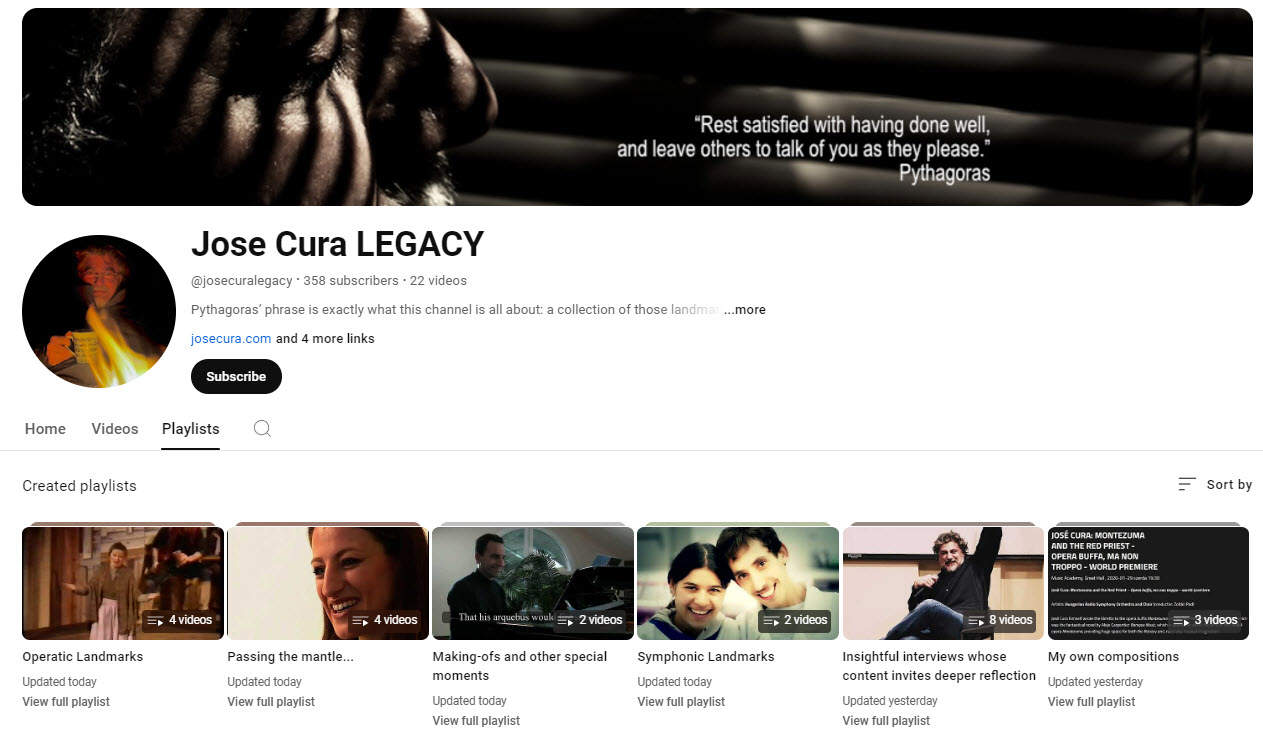


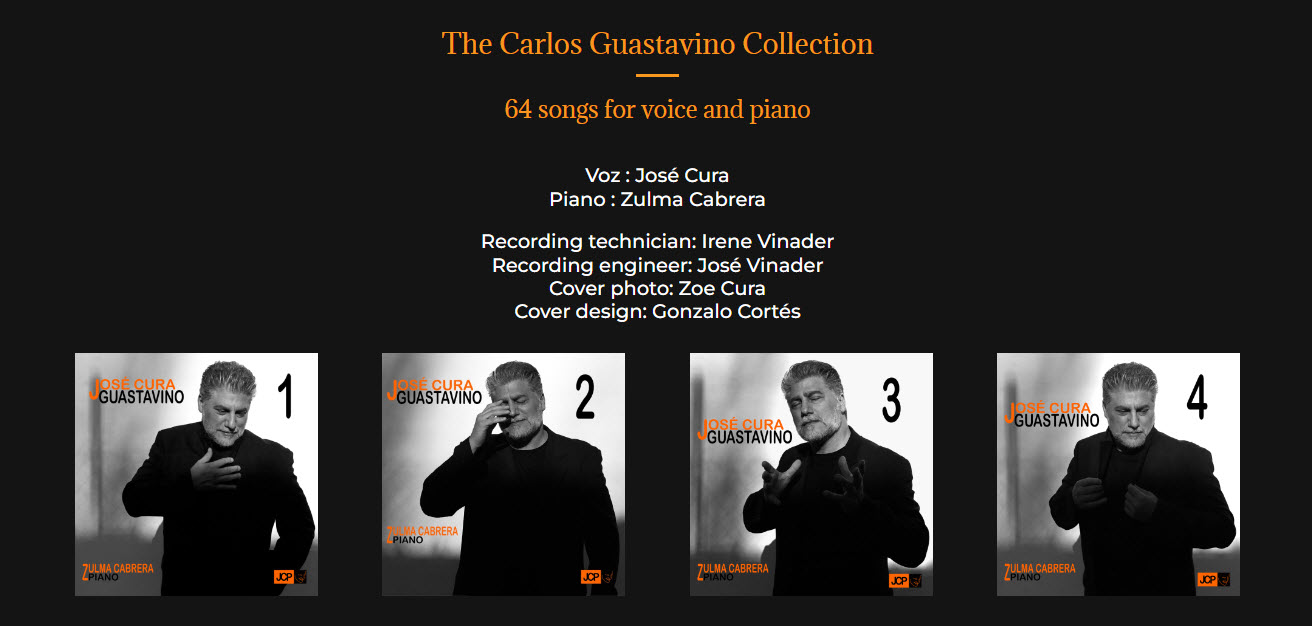
Available on iTunes and at Amazon
Resources
|
|
|
Visit at JoseCura.com |
Find Cura on Wikipedia!
This page is an UNOFFICIAL fan page. Mistakes found in these pages are our mistakes and our responsibility.
This fan page is dedicated to promoting the artistry of José Cura. We are supported and encouraged by Cura fans from around the world: without these wonderful people, we wouldn't be able to keep up with the extraordinary career of this fabulous musical talent.
Note that some of the material included on these pages are covered by copyright laws. Please respect the rights of the owners.
About Bravo Cura |Bio Information |Concerts 1 |Concerts 2 |Discography |Opera Works |Opera Work 2 |Press
Last Updated: Sunday, April 20, 2025 © Copyright:
Kira
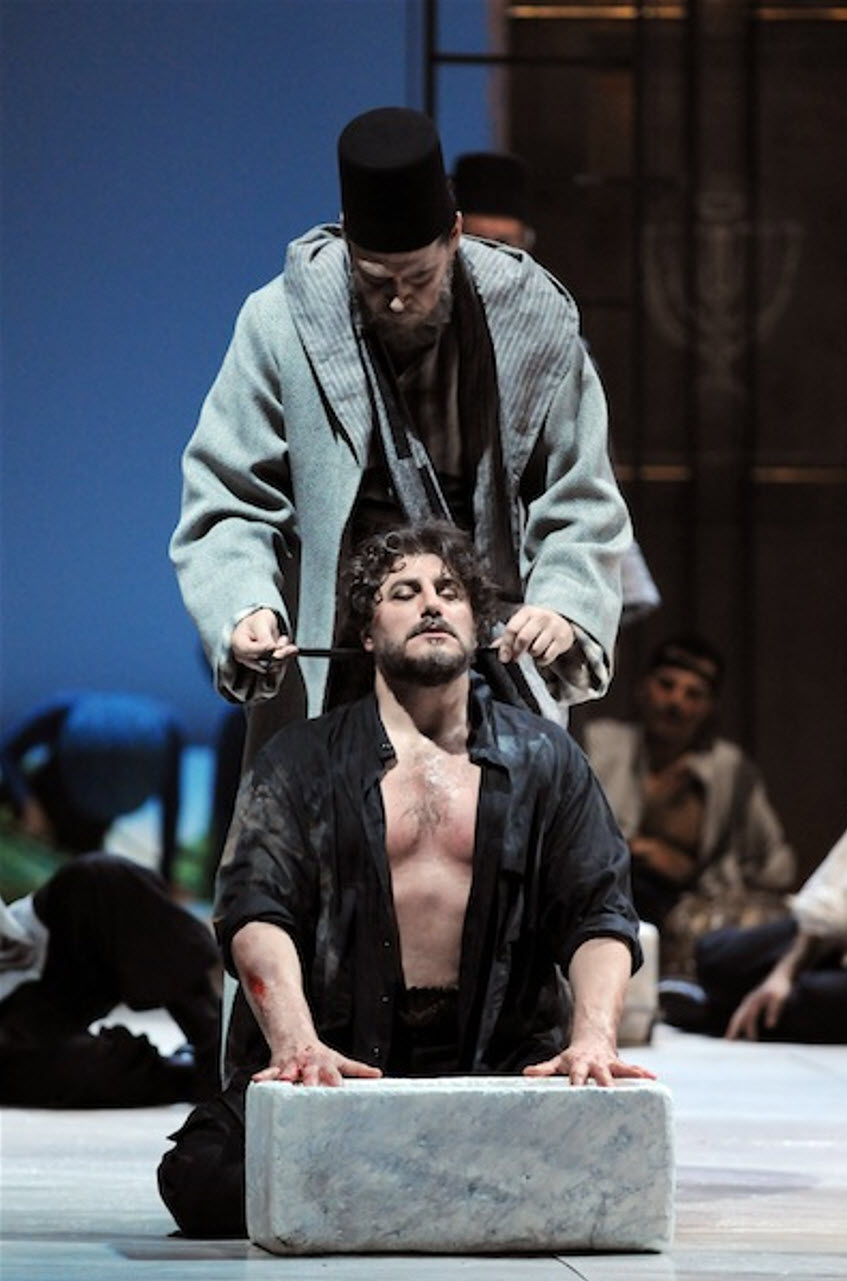

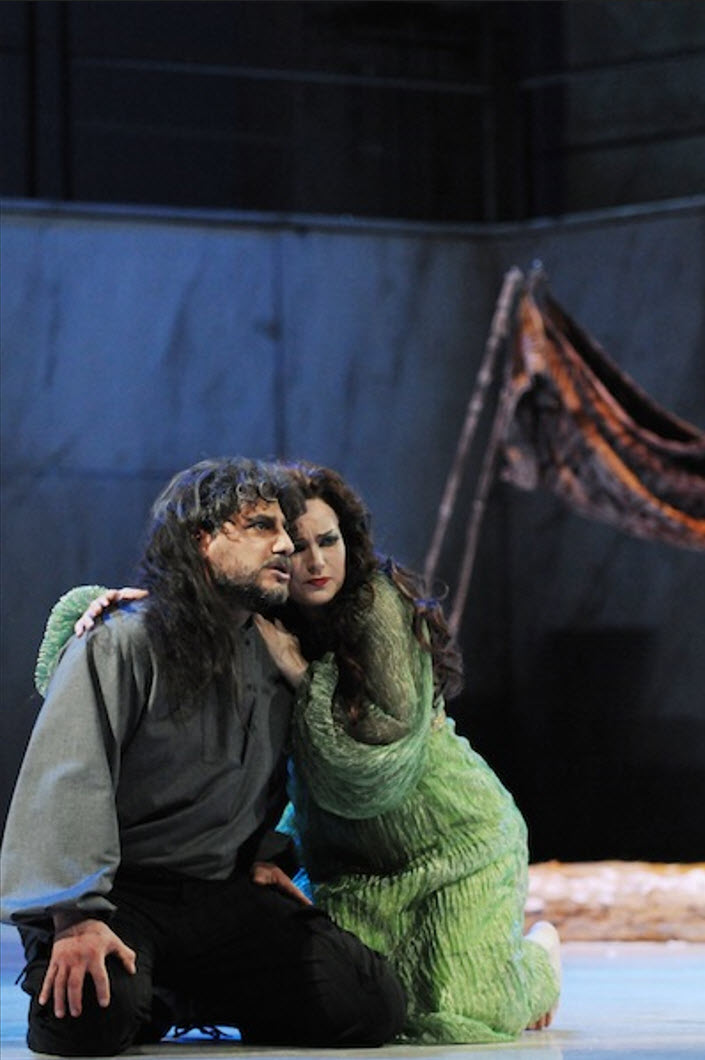


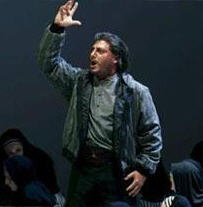
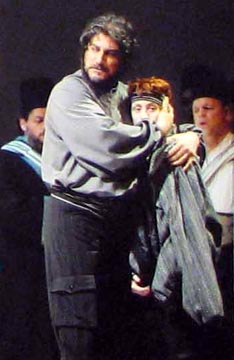
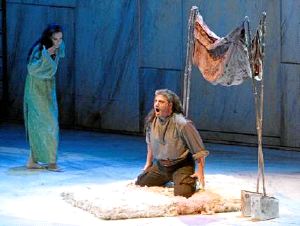
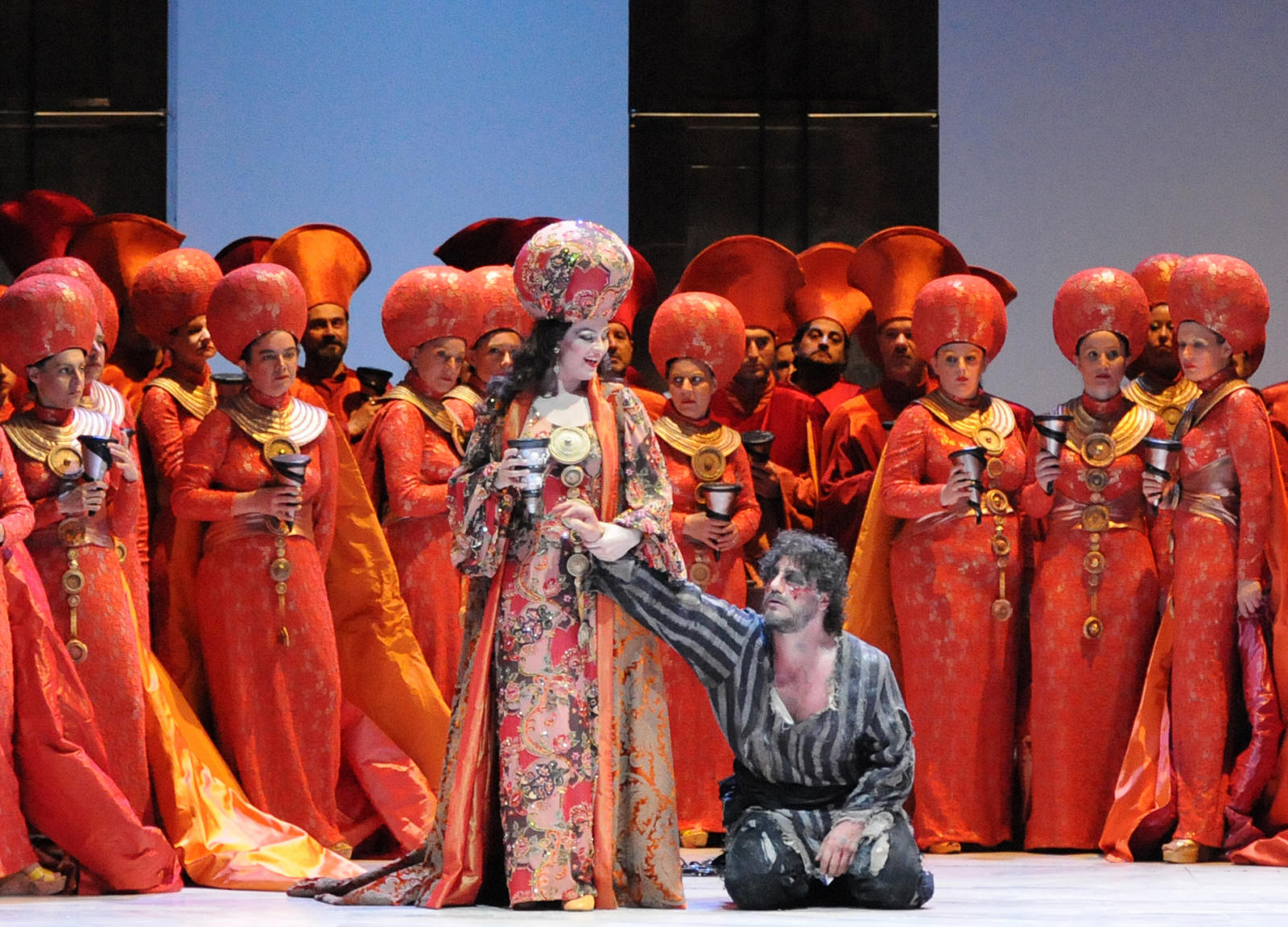
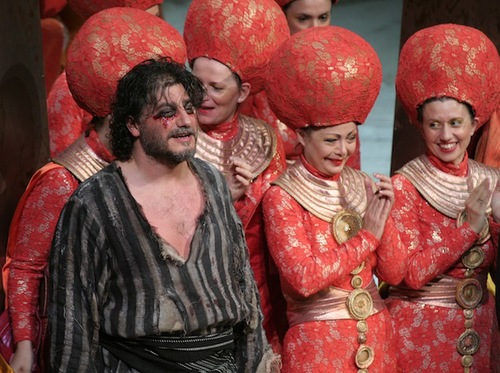

 He
speaks clearly,
distinctly, without
empty rhetoric,
and likes to get
straight to the
point. Tenor José
Cura (Rosario, Argentina,
1962) does not move
through life quietly;
he says things that
may cause others
to like him or not,
as either an artist
and individual,
because he says
things people don't
like to hear. His
discourse is straightforward.
He learned to sing
after studying conducting
and composition.
The roles in
Samson
and Otello
have brought him
artistic fame. Cura
possesses a strong
artistic personality,
a tenor who can
sing like a baritone
and is not afraid
of retiring from
the stage.
He
speaks clearly,
distinctly, without
empty rhetoric,
and likes to get
straight to the
point. Tenor José
Cura (Rosario, Argentina,
1962) does not move
through life quietly;
he says things that
may cause others
to like him or not,
as either an artist
and individual,
because he says
things people don't
like to hear. His
discourse is straightforward.
He learned to sing
after studying conducting
and composition.
The roles in
Samson
and Otello
have brought him
artistic fame. Cura
possesses a strong
artistic personality,
a tenor who can
sing like a baritone
and is not afraid
of retiring from
the stage.

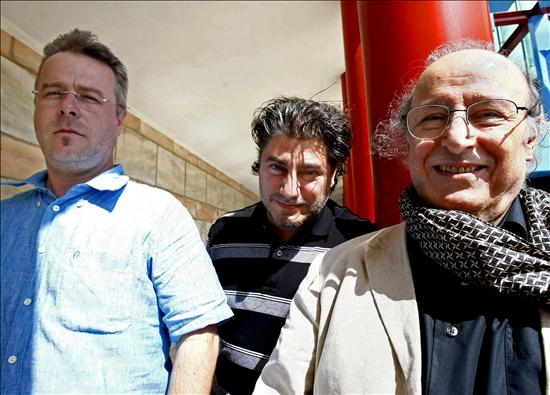
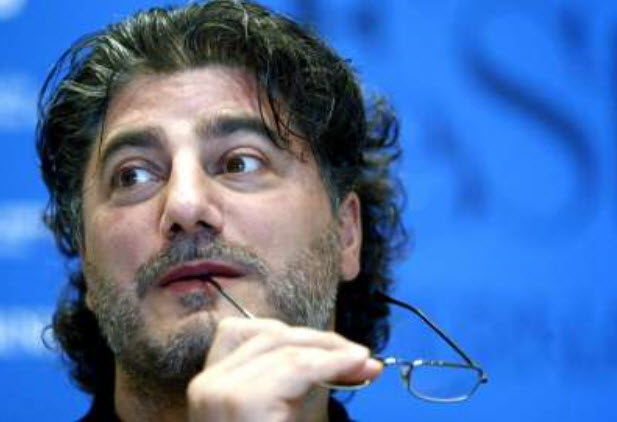 Argentine
tenor José Cura
has been on
stage for twenty
years, and in
that time he
has seen many
singers "break
down," whether
talented or
not. He is clear
that the world
of opera demands
"a strong back"
and that only
the most solid
artists endure,
a "natural law"
that extends
to other fields
such as sports
and politics.
Argentine
tenor José Cura
has been on
stage for twenty
years, and in
that time he
has seen many
singers "break
down," whether
talented or
not. He is clear
that the world
of opera demands
"a strong back"
and that only
the most solid
artists endure,
a "natural law"
that extends
to other fields
such as sports
and politics.